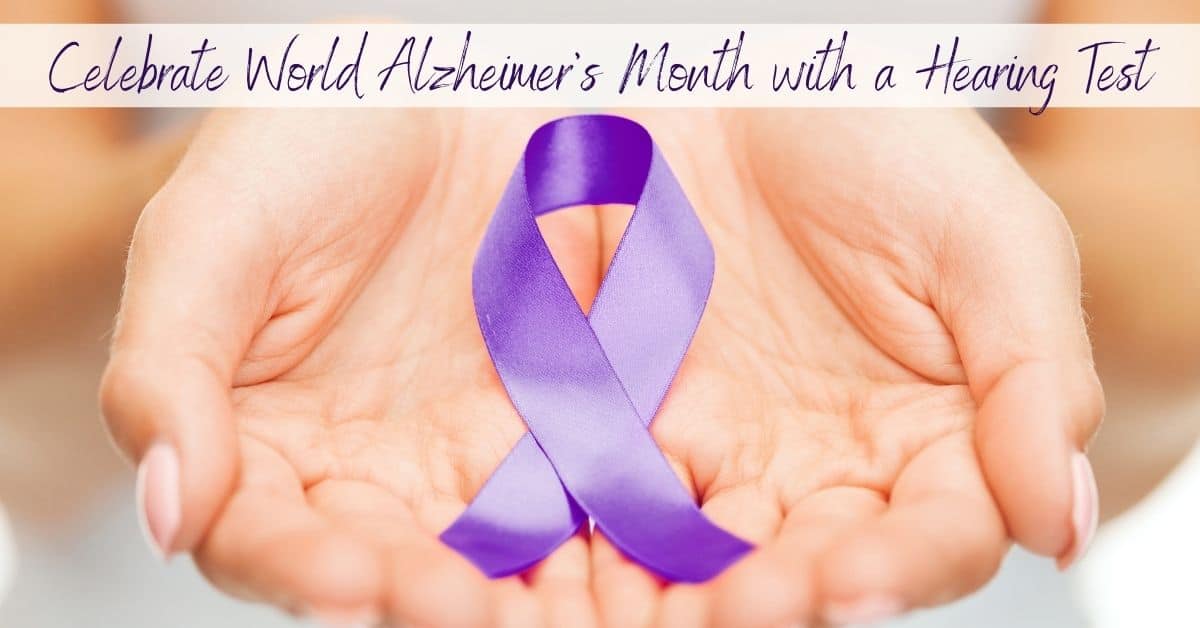- The Advantages of Rechargeable Hearing Aids - July 16, 2024
- How to Enjoy Music Festivals While Protecting Your Hearing - July 3, 2024
- Over-the-Counter Hearing Aids vs. Custom Hearing Aids - June 28, 2024
September is World Alzheimer’s Month, making it a perfect time to discuss hearing loss.
As more and more evidence shows, the two disorders are closely interrelated, and managing hearing loss may directly impact healthy brain function.
Hearing loss stands at number three in the most common conditions affecting older adults (after arthritis and heart disease). By the age of 65, there will be hearing loss affecting 1 of every three people.
The different forms of dementia – including Alzheimer’s disease – are also on the rise. By the year 2050 alone, there is an estimated increase to nearly 14 million cases of Alzheimer’s disease in the US.
What is Alzheimer’s disease?
Alzheimer’s disease is a degenerative brain disorder that affects your brain regions involved in thought, memory, actions, emotion, personality, and mood. Many people diagnosed with Alzheimer’s disease are over 65 years old, affecting millions of people worldwide.
It is the most common type of dementia, so the two terms are often used interchangeably. Many with moderate dementia encounter only slight annoyances. But as the disease progresses to more severe stages, it affects every aspect of life. Those with dementia or Alzheimer’s disease may eventually become dependent on others to perform simple daily living tasks.
The early signs of Alzheimer’s
The brain is the body’s most complex organ, and scientists are still far from learning everything about the brain. One thing they do know is that brain changes begin as many as ten years before any of Alzheimer’s disease’s warning signs are visible!
Memory loss and impaired judgment are among the early warning signs of dementia. Those with dementia sometimes fail to perform repetitive activities and get stuck halfway doing something they’ve done a hundred times before. They are prone to misplacing things or getting lost after leaving home. Other Alzheimer’s warning signs include forgetting the time or date, misplacing items, mood changes, language difficulties, and social withdrawal.
Reducing the risk of dementia
Since Alzheimer’s disease can’t be cured and signs sometimes do not occur until many years after the onset of Alzheimer’s disease, it is vital to do everything you can to reduce the risk of dementia by keeping the brain healthy. A healthy diet, regular exercise, and a lively social network all play a significant role in developing your brain.
Many studies indicate that chronic hearing loss leads to more issues than being unable to understand your friends or listen to television — it may raise the likelihood of developing dementia severely. Indeed, one of the best things you can do for your mind is to treat your hearing loss.
Scientists have long learned about the associations between hearing loss and dementia. They have found that living with chronic hearing loss accelerates cognitive deterioration and significantly increases dementia or Alzheimer’s disease.
Hearing treatment could prevent dementia.
Since hearing loss has been connected to an increased risk of dementia, several studies have found that hearing aid treatment could slow down the disease’s development.
Hearing aids intensify sounds and send us more tangible signs of sound in our everyday lives. From speech recognition to awareness of sound directionality in our world, hearing aids manage hearing loss and ensure that we and our brains remain involved and aware of our surroundings. Also, hearing aids ensure we don’t lose contact with our loved ones or give up our favorite pastimes and hobbies to keep our brains healthy.
A recent report from the Lancet commission gathered the most important risk factors for getting Alzheimer’s based on the best available research. The report highlighted hearing loss among the risks, which include smoking, obesity, and depression. The report concluded that those with hearing loss should seek treatment as early as possible. In the press release for the article, Alzheimer’s Disease International’s Chief Executive Paola Barbarino remarked: “I know how hard it is to persuade those with hearing loss to wear hearing aids but there has never been a more compelling case to start using them as they are a protective factor.”
The benefits of hearing aids extend far past cognitive benefits, but it’s a good start. If you’re ready to take steps to keep your brain active and healthy, contact us today to set up a hearing appointment.

